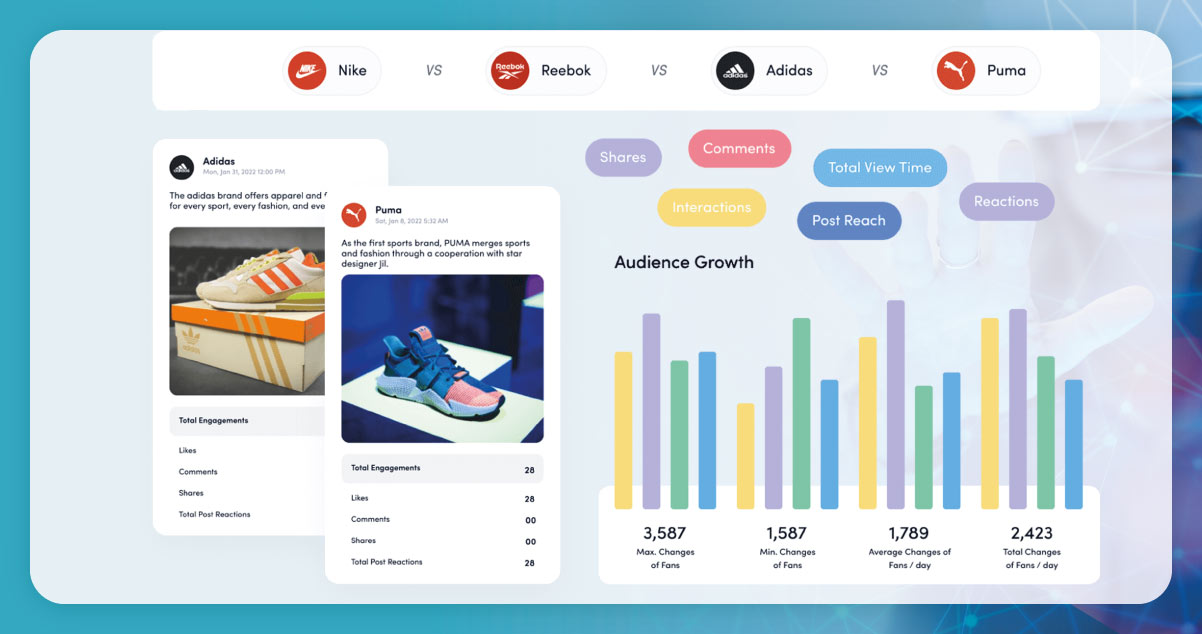How Can You Win Customers By Using Product Intelligence?

Markets have become volatile, and the majority of products have limited opportunities. Businesses must improve design and engineering to develop the characteristics and personalization their clients want. From a vast selection and free shipping to imaginative new shopping experiences, clients today have many options.
In this fierce time, Product Intelligence drastically increases product popularity or takes your customers to you.
Product Intelligence Meaning

In a product-led era, companies having the finest product experiences win. Product Intelligence is a procedure of collecting and analyzing data on how people experience products.
Product Intelligence is much more than collecting product information for sales. Companies have to develop a 360° understanding of their whole product portfolio – description, availability, tags, promotions, specifications, ratings, attributes, and facets; by tracking, evaluating, and getting insights from the metrics’ retailers could get a complete understanding about the required information to lead the competition.
How Important Is the Product Intelligence?

1. Scope Your Competition
Real-time competitive intelligence helps you recognize gaps in the retail procedure and give insights about better performances and well- informed decisions. This knowledge is impractical if you don’t understand how to use it in real-time.
When will competitors’ products become out of stock? Which customers’ products will do the best during the sales season? Is the competitor’s range mix much better than yours, or contrarywise? Addressing all these questions will help you compete with your rivals.
2. Innovations and Improvements
While looking at the competition, ensuring that all gets well in the backyard is sensible. To bear a competitive benefit, today’s companies must develop a deeper understanding of all products and their lifecycle in the portfolio.
[Amazon’s intelligent shopping cart – The Dash Cart – a great example of shopping innovation]
Finding an endwise view of every product with its movement in the value chain will assist you in collecting important product or procedure information. By providing details about product performances back to business, companies could enhance operations, improve product designs, and increase customer engagement.
Accepting product intelligence in the value chain significantly decreases manufacturing costs, design costs, lost revenue, and indirect channel costs. Companies that have included intelligence in the product lifecycle report enhanced brand engagement, product adoption, and superior safety compliance. Improved inventory intelligence assists retailers in the prevention of loss.
3. Intelligent Pricing
Product intelligence assists business owners in making the most important decision: How to price products correctly!
Product Intelligence assists retailers in making well-informed product price decisions. Understanding the dynamic pricing powers in the market is essential to increase sales. Too much focus on providing economical products may come at the expense of distinguishing products from competitors.
The takeaway is to understand the whole thing about how the products are offered in the market: discounts offered, price volatility, where a product is provided, stock accessibility, etc. It is essential to know the attributes that drive product value.
4. Distinguishing Product Details

Make product details your discriminator! Your products are expected to collect huge sales when they turn out on the customer’s search. Although how you structure product information will help customers find you more quickly. This fundamentally involves optimization of the navigation system, category structure, and searches so that people can easily find you from input queries.
5. Superior Product Experience
An essential part of product intelligence includes understanding the performances of products on different platforms or channels. The technology-savvy customer might shop using a tablet, smartphone, or laptop.
Apple is ahead in the competition through data collection about when, how, and where products like tablets, computers, smartphones, and wearables got used. These details are leveraged to regulate which new features need to be added, or how they get operated could be tweaked to provide the most logical and comfortable user experience.
A retailer must understand the main metrics essential across different digital platforms for making online shopping an excellent customer experience. Having a business, you should know how the products get placed across various channels.
For instance, if customers abandon your products after adding them to the cart, investigate if it lacks suitable descriptions, images, reviews, or specifications. Product intelligence can give actionable insights to increase your brand’s digital image.
How to Provide Successful Product Intelligence Solutions?
1. Product Research

Product market research is essential to know what exactly the customers are looking for. You can collect consumer feedback on products currently accessible in the market using online reviews and ratings. These details will be closely examined to study whether every product fails, exceeds, or meets customers’ expectations.
Product research resources get a complete understanding of design data, service data, manufacturing and test data, distribution metrics, and marketing metrics of products to drive quicker innovation. Product research gives insights from answering questions like when to concentrate your efforts on the market, debuting new generations about the product, and stopping previous lines.
2. Product Tracking
![]()
Studying what carries success is a practical approach to product intelligence. For that, your products would get monitored to recognize their lifecycle better. You can find profitable niches by decoding the real- time data obtained using monitoring.
You can identify trending products by observing search signals, product reviews, social media signals, and competitors’ data. It helps you recognize and move inventories where the demands are the maximum.
Product tracking assists in exploring product opportunities and getting insights about product performances. It addresses concerns like if the products are best suited to the market or if they understand optimal returns.
3. Products’ Competitor Analysis

Competitor analysis is an impeccably ethical and legitimate strategy to advance your business. The first step of competitor analysis is understanding the competitive landscape and identifying whether you are directly, indirectly, perceived, or aspirational competitors. Track them by analyzing their sales tactics and strategies.
Carefully research and observe competitors’ best products and top sellers and recognize their essential product metrics, including total units sold daily, revenue, and more.
4. Product’s Keywords Tracking
![]()
Following keywords expands product visibility and uncovers newer opportunities by identifying important keywords at which your competitors rank higher. With competitor analysis, businesses can better understand rankings for various keywords of competitors.
You can use product keyword tracking to monitor your product ranking and the position of targeted keywords. It will assist you in identifying the finest working keywords driving customers towards your product.
Conclusion
Product intelligence is a fantastic tool to have to get a competitive advantage. In case you want to solve a product puzzle through adoption of product intelligence, Actowiz Solutions is ready to help! Contact us at Actowiz Solutions, your prominent data service provider!
You can also reach us for all your mobile app scraping and web scraping service requirements.
know more : https://www.actowizsolutions.com/how-can-you-win-customers-by-using-product-intelligence.php

